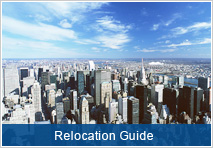|
The public transportion in Beijing has witnessed rapid changes.In1949, there were only 5 buses and 49 tramcars for the whole city of Beijing.But now we have a total of 13,000 public buses and 65,000 taxis(up to 2002)and the number is still growing.Now the public buses on the street are made in China.mainly in green with some yellow and red colors.The green color symolizes the environmental protection. the yellow stands for the ancient imperial captial while the red represents the public transportations.
bicycle
Beijing is so called the "Kingdom of bicycles",now we have over 9 million bicycles in Beijing,almost everyboby has one.It is a con
Buses
Buses are inexpensive but also crowded during peak hours and because of heavy traffic, rarely if ever, arrive on time.but you need to transfer few times to arrive your place, if your time is quite limited,please don't do that.
Taxis
Taxis are an affordable way to get around the city and, unlike Shanghai, it's relatively easy to get one. The exception is on Beijing's rare rainy days.Most drivers can speak a little bit English,it's better to write the address on the paper in order to show to the driver if your chinese is poor.You'd better to get a receipt from the driver in case you lose your belongings.
Subway
For those whose offices and homes are close to subway stations, it's a quick, comfortable and affordable way to get to work. Multiple new subway lines will soon open creating, at long last, a network covering most of the city. How to Buy the Ticket:
Subway Fares:
A single-ride tickets costs RMB 2.00, it is a flat fare with unlimited transfers applies to all lines except the Airport Express, which costs RMB 25.00 per ride. and you can also get a Yikatong, an integrated circuit card that need to pay RMB 20.00 deposit, refundable, plus whatever amount you want to put on the card, All subway lines now collect fares through automatic fare collection (AFC) machines that accept single-ride tickets and Yikatong.
Subway Lines:
The original lines are "Line 1" which goes east-west line underneath Chang'an Avenue, which bisects the city through Tiananmen Square. It is connects major commercial centres, Xidan, Wangfujing, Dongdan and the Beijing CBD. "Line batong" extends Line 1 eastward from Sihui to suburban Tongzhou District. "Line 2" which is a a rectangular loop line, traces the second ring road, and stops at 11 of the wall's former gates, now busy intersections, as well as the Beijing Railway Station. The "Airport Line" connects the Beijing Capital International Airport, 27 km northeast of the city, with Line 10 at Sanyuanqiao and Lines 2 and 13 at Dongzhimen. The "Line 13" which across suburbs north of the city and channels commuters to Xizhimen and Dongzhimen, at the northwest and northeast corners of Line 2. the "Line 5" which is a straight north-south line just east of the city centre, "Line 10" passes just south of the Olympic Green Park. It turns straight south and follows the eastern 3rd Ring Road. And the Olympic Branch Line ("Line 8") extends north off Line 10 with three stops in the Olympic Green.
Cars
Some expatriates choose to purchase or lease a car. Those living in the suburbs definitely need one as there are few taxis and no subway access. Note that some companies have policies specifying that foreign employees may not drive during their posting in China. Many expats choose to lease a car and driver. It is important that you lease from a driver (or leasing company) with the correct permit allowing him to lease out his car. if you'd like lease a car, you can also connect our company,we still supply car rental service for you which include the driver ,petrol and other toll fee.
|







